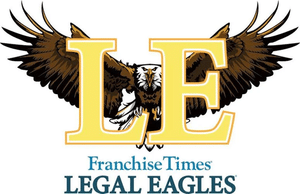What is Master Franchise Ownership?
The Master Franchise or Sub-Franchisor Ownership is the most complex of ownership options. This type of ownership is less common in the United States and is more often seen internationally. Within a Master Franchise Agreement, the “Master Franchisee” is granted the legal right to both sell franchises and to approve and sign franchise agreements with sub-franchisees. Essentially, the Master Franchisee “steps into the shoes” as the franchisor and maintains a direct relationship with franchisees.
The key differentiating factor between an Area Representative and a Master Franchisee is that the Master Franchise Agreement grants the Master Franchisee to basically become the franchisor in an area that they are authorized to offer sub-franchises. The Master Franchisee will have their own Franchise Disclosure Documents and agreements, containing information about themselves and their offered services, and the Master Franchisee’s documents will be prepared by the Master Franchisor.
Advantages of Master Franchise Ownership
The advantages of master franchise ownership are similar to those of area representative ownership and include:
- Increased revenue and income: Again, the franchisor can sell larger territories, allowing for increased capital.
- Less involvement required: The Master Franchisee handles all of the heavy lifting, meaning the franchisor can remain passive while collecting a percentage of royalties and ongoing franchise fees.
- Rapid growth: A master franchise can expand extremely rapidly. It has similar benefits to multi-unit franchising.
- Expanded reach: This is a common strategy for franchises looking to expand internationally, as the Master Franchisee will manage local logistics and relationships.
From the Master Franchisee’s point of view, they are also given a proven model so the ability to succeed should be high, making it less risky for them.
Disadvantages of Master Franchise Ownership
Disadvantages of Master Franchise ownership include:
- Less control: As a franchise owner, you are putting a big amount of trust in the Master Franchisee.
- High recruitment cost: As with any large expansion, you’ll likely be investing more time and money into recruitment to grow quickly.
- Increased legal risk: You are giving more responsibility to the Master Franchisee, which always comes up with some legal risk.
- Complicated: The model involves a lot of moving parts and shifting of responsibilities, which can be confusing structurally.







